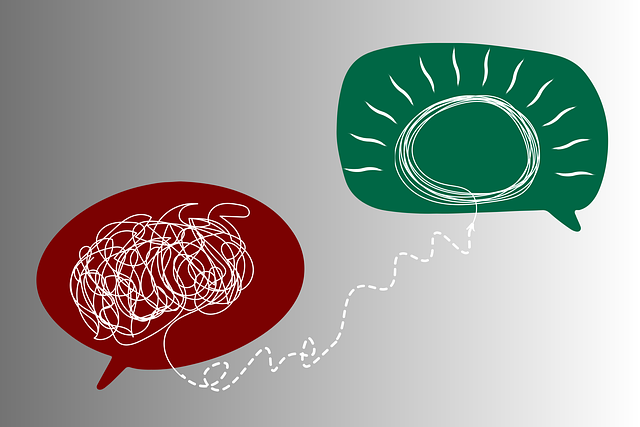Depression in Denver significantly impacts daily life, but early intervention through Denver American Sign Language (ASL) therapy offers valuable support. Recognizing signs like persistent sadness and thoughts of self-harm is crucial. ASL therapy teaches communication strategies to express emotions, breaking down barriers in mental health services for the deaf community. Combining compassion cultivation with ASL enhances connection and support networks, improving mental health outcomes. Lifestyle changes and stress management techniques, integrated into ASL therapy, provide personalized plans for depression prevention and management. Building a robust support network through ASL therapy reduces isolation and boosts mental well-being. If persistent feelings disrupt daily life, consider Denver American Sign Language (ASL) therapy for tailored interventions to improve mental health outcomes.
Depression is a prevalent yet complex condition, affecting millions. This article explores strategic approaches to prevent and manage it, from understanding key signs and symptoms to innovative therapies like Denver American Sign Language (ASL) therapy for early intervention. We delve into lifestyle adjustments, the power of social connections, and when to seek professional help. By combining these insights, individuals can build resilience and improve mental well-being.
- Understanding Depression: Signs and Symptoms
- The Role of Denver ASL Therapy in Early Intervention
- Lifestyle Changes for Preventing and Managing Depression
- Building a Support Network: Social Connections Matter
- Professional Help: When and How to Seek It
Understanding Depression: Signs and Symptoms

Depression is a complex mental health condition that can significantly impact an individual’s daily life and overall well-being. Recognizing the signs and symptoms early on is crucial in Denver, where American Sign Language (ASL) therapy has emerged as a valuable tool for prevention and support. The first step towards understanding depression involves being aware of its various manifestations. Individuals may experience persistent feelings of sadness, loss of interest in activities once enjoyed, changes in appetite or sleep patterns, fatigue, difficulty concentrating, and even thoughts of self-harm. These signs can vary in intensity and duration, but they often serve as red flags indicating a need for intervention.
Through Denver ASL Therapy, individuals can learn communication strategies to express their emotions and seek help effectively. Compassion cultivation practices, often incorporated into stress management workshops organized by local community groups, have shown promise in preventing and managing depression. These practices encourage empathy, self-kindness, and mindfulness, fostering a supportive environment for those at risk or currently battling depression. By combining ASL therapy with these compassionate communication techniques, individuals can enhance their ability to connect, share experiences, and access the necessary support networks, ultimately contributing to better mental health outcomes.
The Role of Denver ASL Therapy in Early Intervention

Denver American Sign Language (ASL) therapy plays a pivotal role in early intervention for depression prevention, particularly within communities where hearing impairment or deafness may be prevalent. This unique therapeutic approach transcends verbal communication barriers, offering a powerful tool to reach and support individuals who might otherwise struggle to access mental health services. Through Denver ASL Therapy, professionals can engage with clients in a way that fosters open dialogue and encourages emotional expression, early signs of depression can be identified and addressed.
By integrating ASL into therapeutic practices, the Stress Management Workshops Organization promotes inclusive self-care strategies. This includes incorporating Mindfulness Meditation as a core component, enabling individuals to develop coping mechanisms that reduce stress and enhance overall well-being. Early intervention through Denver ASL Therapy not only breaks down communication barriers but also empowers individuals with effective self-care practices, potentially preventing the onset or escalation of depressive symptoms.
Lifestyle Changes for Preventing and Managing Depression

Making lifestyle changes can significantly prevent and manage depression. Regular physical activity, a balanced diet, and adequate sleep play pivotal roles in maintaining mental health. Incorporating stress reduction methods like mindfulness meditation, deep breathing exercises, or yoga into daily routines can help reduce anxiety and improve mood. Additionally, fostering strong social connections and engaging in activities that bring joy and meaning are essential coping skills development strategies.
Seeking professional support is another crucial aspect of depression prevention. Denver American Sign Language Therapy offers unique benefits by providing accessible communication channels, which can enhance mental well-being. Therapists can guide individuals through personalized plans, incorporating lifestyle modifications and stress reduction techniques tailored to their needs. By combining these approaches, one can effectively navigate the path towards better mental health.
Building a Support Network: Social Connections Matter

Building a strong support network is an essential aspect of depression prevention, and for individuals who use American Sign Language (ASL), this can be tailored to their unique needs. In Denver, ASL therapy services offer not just language support but also a chance to connect with others who understand their experiences. Through ASL therapy groups or community events, individuals can foster meaningful relationships and create a safe space to share their struggles and victories. This sense of belonging is crucial for mental well-being; it provides emotional support, reduces feelings of isolation, and offers a platform for social skills training.
By engaging in Denver American Sign Language Therapy, individuals can learn effective communication strategies that enhance their ability to connect with friends, family, and peers. This therapy also equips them with mood management techniques and stress reduction methods tailored to their cultural background, ensuring they have the tools to navigate life’s challenges while maintaining a positive outlook.
Professional Help: When and How to Seek It

When facing persistent feelings of sadness, hopelessness, or loss of interest that interfere with daily life, it’s crucial to recognize when professional help is necessary. Depression is a serious mental health condition that requires proper diagnosis and treatment. Seeking support from qualified healthcare professionals, such as therapists specializing in American Sign Language (ASL) therapy in Denver, can make a significant difference. These experts are trained to provide tailored interventions, ensuring individuals receive the care they need.
There’s no shame in reaching out for assistance; many effective treatments are available. Mental wellness coaching programs, often combined with evidence-based therapies, offer personalized strategies for managing symptoms. If you’ve been experiencing difficulties that impact your ability to function or maintain relationships, consider initiating a conversation about depression. With the right support, it’s possible to navigate challenges, improve mental health awareness, and find coping mechanisms for anxiety relief.
Depression prevention is a multifaceted approach, from recognizing signs early on to adopting healthy lifestyle changes. As highlighted, Denver ASL therapy offers a unique method for immediate intervention and communication. By combining these strategies with a strong support network and professional help when needed, individuals can effectively manage and prevent depression. Remember that seeking assistance is a sign of strength, and with the right tools, it’s possible to lead a fulfilling life.














